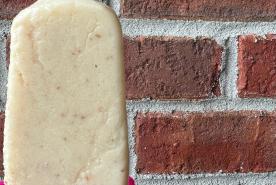Last updated: January 10, 2019
Medically reviewed by: NKF Patient Education Team:
In collaboration with: American Academy of Pediatrics, American Society of Pediatric Nephrology and the National Kidney Foundation Patient Education Collaborative
Nocturnal enuresis is bedwetting at night, common in kids and teens. It often resolves on its own. Treatments include alarms, meds, and lifestyle changes.
What is nocturnal enuresis?
Nocturnal enuresis means wetting the bed at night. It usually happens after age 5, and it affects many school-age children and even some teens. It's not a serious health problem, and children usually outgrow it. Still, bedwetting can be upsetting for children and parents.
There are 2 types of nocturnal enuresis:
- Primary enuresis: a child has never had bladder control at night and has always wet the bed.
- Secondary enuresis: a child did have bladder control at night for at least 6 months but lost that control and now wets the bed again.
Primary enuresis is much more common. Secondary enuresis in older children or teens should be evaluated by a doctor. Bedwetting in this age group could be a sign of a urinary tract infection or other health problems, neurological issues (related to the brain), stress, or other issues.
It's important to work with your child's doctors to find possible causes and solutions. Here are some frequently asked questions.
How common is bedwetting in children and teens?
Occasional "accidents" are common among children who are toilet trained. Around 20% of children have some problems with bedwetting at age 5, and up to 10% still do at age 7, but problems then decrease to 1-3% by the the late teens. Nocturnal enuresis happens 2 to 3 times more often in boys than girls.
What are some causes of bedwetting?
It’s not completely known why bedwetting occurs, but it’s thought to happen because of a delay in the development of one or more these areas of the body that cause problems at night:
- Kidneys: The kidneys make more urine at night.
- Bladder: There’s less space in the bladder to hold urine at night.
- Brain: The brain can’t wake the body up during sleep
In babies and toddlers, links between the brain and the bladder have not fully formed. Therefore, the bladder will just release urine when it feels full. As children get older, the links between the brain and bladder form. This allows a child to control when to empty their bladder. Daytime control usually develops first. It takes more time for night-time control to happen.
Other bedwetting risk factors
- Genetics. If one parent wet the bed after 5 years old, their children may have the same problem about 40% of the time. If both parents wet the bed as children, then each of their children would have about a 70% chance of having the same problem.
- Stress. This is one of the most common reasons for secondary enuresis. Children have stress when moving to a new home or school, seeing their parents divorce, losing a parent or other people they love, or going through another major life event. This stress can cause bedwetting. Treating the stress can stop the bedwetting.
- Deep sleep. A deep sleep pattern can be part of normal teen development, as can a poor sleep schedule and too few hours of sleep. This is all common during puberty and especially during a teen's high school years.
- Obstructive sleep apnea/snoring. In rare cases, bedwetting happens because a child has obstructive sleep apnea and snores. Children with this condition have a partly blocked airway that can briefly stop their breathing when they sleep. This can change the chemical balance of the brain, which may trigger the bedwetting.
- Constipation. The bladder and bowels sit very near each other in the body. A bowel that is stuck with stool (constipation) can push on the bladder and cause the child to lose bladder control. Treating the constipation is often the first step to treating the bedwetting in these cases. If your child is having pain or straining with bowel movements, this could be contributing to bedwetting.
- Bladder or kidney disease. This may be the case if a child has both daytime and nighttime bladder control problems and other bladder symptoms such as pain when peeing or the need to pee a lot.
- Neurologic disease (problems with the brain or nerves). Sometimes a spinal cord problem that develops with growth or that is present early in childhood can cause bedwetting. If your child has other symptoms like numbness, tingling, or pain in the legs, a spinal issue may be considered. However, this is a very rare cause of bedwetting.
- Other health problems and/or medicines. In rare cases, other health problems like diabetes cause enuresis in children. Some studies suggest that children with attention-deficit/hyperactivity disorder (ADHD) are more likely to have enuresis, possibly because of differences in brain chemistry. Some medicines can also increase the chances of bedwetting.
What is the emotional impact of bedwetting?
Bedwetting may have an emotional impact on both children and their families. Children may get embarrassed, feel anxious, or develop low self-esteem. This can affect their relationships, quality of life, and schoolwork. Children with bedwetting may feel like they can’t go to sleepovers or overnight camps. Siblings may have to sleep in separate rooms or be woken up when the parent or bedwetting alarm wakes the affected child. Family members may have the extra work of cleaning the dirty sheets and clothes.
It is very important to remember that bedwetting is not your child's fault or that it’s under their control. Family members and friends should not shame or punish the child. Instead, focus on working with your doctor to figure out the cause and taking steps that can help.
How is bedwetting evaluated?
Your child's doctor will first take a complete medical history and ask about any other urinary symptoms such as the urge to urinate a lot, the need to "run to the bathroom" a lot, or pain or burning while peeing. The doctor will also ask about sleep patterns, how often your child moves his or her bowels, and family health. The doctor will ask if either parent wet their bed at night as a child. Finally, the doctor may ask about stressful events in the child's life that could be adding to the problem.
Your child will also have a complete physical exam including a simple urine test (urinalysis). This test shows signs of a disease or an infection. In most children with enuresis, the results of this test come back completely normal. X-rays are usually not needed.
Is there treatment for older children and teens who wet the bed?
Yes. However, treatment for bedwetting first depends on if it is caused by something like stress, which would need to be managed first. Overall, children who take an active part in their treatment have a better chance of decreasing or stopping the bedwetting.
Bedwetting alarms:
Research shows that about half of children who properly use enuretic (bedwetting) alarms will stay dry at night after a few weeks. These alarms buzz or vibrate when a child's underwear gets wet. Over time, the brain is trained to associate the feeling of needing to pee with the alarm going off and getting up and going to the bathroom. This therapy requires help from an adult to make sure the child fully wakes up and goes to the bathroom when the alarm goes off.
Medicines:
There are only two medicines that have been approved for bedwetting—imipramine and desmopressin. It’s important to note that bedwetting usually returns once medicines are stopped, unless the child has "grown out of" nocturnal enuresis.
- Imipramine works well in some children with nocturnal enuresis. There is a chance of overdose on this medicine, so it’s important for parents to strictly control how and when it’s given. An EKG is recommended before starting this medicine, although heart problems have not been reported with the doses of imipramine used to treat bedwetting. Children with an abnormal EKG should not use this medicine.
- Desmopressin (DDAVP) helps to reduce the amount of urine your body makes. It improves bedwetting in about 40% to 60% of children. DDAVP comes as both a nasal spray and a pill and is taken before bed. It’s important not to drink any fluids after taking it to decrease the risk of electrolyte imbalance. Oxybutynin, a medicine not specifically approved for bedwetting, may also be helpful, especially in patients who don’t respond to DDAVP alone. It can be taken together with DDAVP.
Tips for parents whose children wet the bed
- Limit food or drinks with caffeine and avoid salty snacks and sugary drinks, especially at night.
- Encourage your child to go to the bathroom regularly during the day (every two to three hours) and just before going to bed.
- Wake your child only once during the night to urinate, if necessary. Waking your child more than once a night may disrupt his or her sleep pattern, which could lead to problems at school the next day.
- For sleepovers and overnight camps, consider sending your child with disposable underpants with boxer shorts over them. Talk with your child about asking the host parent or camp counselor to help them in private, if needed.
Will bedwetting stay with my child into adulthood?
Bedwetting almost always goes away on its own. Most children will grow out of it by the late teens or sooner. Secondary enuresis may go away when the cause is found. It is either treated, or it gets better on its own. If bedwetting has not stopped in the late teens, your child should see a doctor.
Additional Information
- Toilet Training: Toddler Bedwetting (American Academy of Pediatrics)
- Bedwetting (National Kidney Foundation)
Source
American Academy of Pediatrics, American Society of Pediatric Nephrology and the National Kidney Foundation Patient Education Collaborative (Copyright 2019)
The information contained on this Web site should not be used as a substitute for the medical care and advice of your pediatrician. There may be variations in treatment that your pediatrician may recommend based on individual facts and circumstances.

















